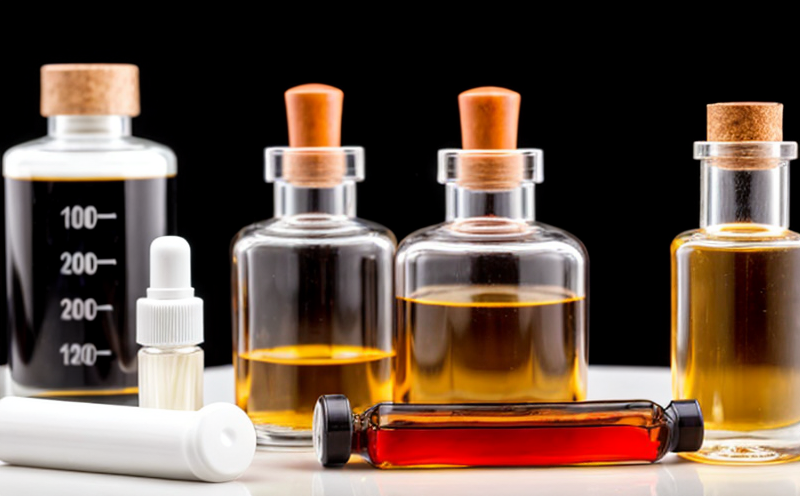IEC 62321 Hazardous Substance Testing in Pharma Equipment
The IEC 62321 standard is a critical component of ensuring that pharmaceutical equipment adheres to stringent safety and quality standards. This standard provides guidelines for the testing and evaluation of hazardous substances in medical electrical equipment, particularly those used in healthcare settings. The primary purpose of this service is to identify and quantify potentially harmful materials within pharmaceutical manufacturing equipment to safeguard patient health.
Pharmaceutical equipment plays a pivotal role in ensuring that medications are produced under hygienic conditions free from contamination. Compliance with IEC 62321 ensures that the equipment used does not introduce hazardous substances into the final product, thereby protecting public health and meeting regulatory requirements. This service focuses on analyzing specific chemicals such as heavy metals (lead, mercury, cadmium), plasticizers (DEHP, DBP), and other potentially harmful compounds.
Our laboratory uses state-of-the-art analytical instruments to perform this testing accurately and efficiently. These include inductively coupled plasma mass spectrometry (ICP-MS) for detecting trace elements, gas chromatography-mass spectrometry (GC-MS) for identifying organic solvents, and Fourier transform infrared spectroscopy (FTIR) for qualitative analysis of materials.
Specimen preparation is crucial for accurate testing. Samples are collected from various parts of the equipment, including valves, connectors, and internal components. Each sample undergoes a series of steps to ensure purity before being analyzed. This process involves cleaning, drying, and sometimes grinding or slicing samples depending on their size.
The IEC 62321 standard outlines specific acceptance criteria that must be met for the equipment to pass testing. These include limits for certain hazardous substances based on weight percentage or parts per million (ppm). For instance, DEHP should not exceed 0.1% in PVC components of pharmaceutical equipment.
Our team has extensive experience working with IEC 62321 and understands the complexities involved in this testing process. We offer comprehensive support from initial consultation to final report delivery. Our clients benefit from our expertise by ensuring their equipment complies with international standards, which enhances trustworthiness among end-users.
Compliance with IEC 62321 also contributes significantly towards reducing environmental impact. By identifying and eliminating hazardous substances early in the manufacturing process, we help reduce waste generation and minimize exposure risks during disposal. This aligns well with broader sustainability goals within the pharmaceutical industry.
In summary, our service provides a robust solution for ensuring that pharmaceutical equipment meets rigorous safety standards set forth by IEC 62321. Through precise testing methodologies and thorough specimen preparation techniques, we deliver accurate results that contribute to safer products and processes in healthcare settings.
Customer Impact and Satisfaction
By providing reliable IEC 62321 hazardous substance testing services, our customers gain several benefits. Firstly, they ensure their equipment complies with international standards, which is essential for maintaining a positive reputation in the global market. Secondly, this compliance helps avoid potential legal issues associated with non-compliance or recalls due to unsafe products.
Our detailed reports provide insights into any identified hazards, allowing customers to make informed decisions about necessary modifications or replacements. This proactive approach not only enhances product safety but also improves overall quality assurance practices within organizations.
Customer satisfaction is paramount for us, and we strive to exceed expectations through exceptional service delivery. Our team consists of highly qualified professionals who are committed to delivering accurate results on time. Feedback from satisfied customers reflects their appreciation for our expertise and attention to detail.
To further enhance customer experience, we offer customization options tailored to individual needs. Whether it's adapting test protocols or providing additional analyses beyond standard procedures, we aim to meet diverse requirements effectively.
Environmental and Sustainability Contributions
The IEC 62321 hazardous substance testing service also has significant environmental benefits. By identifying and eliminating harmful substances early in the manufacturing process, our work helps reduce waste generation and minimizes exposure risks during disposal. This aligns well with broader sustainability goals within the pharmaceutical industry.
Through this service, we contribute to a cleaner environment by preventing hazardous materials from entering water supplies or landfills. Our efforts promote sustainable practices that benefit both current and future generations. Additionally, by ensuring compliance with international standards, we support industries in their journey towards greener manufacturing processes.
We recognize the importance of continuous improvement in environmental practices and are committed to exploring new methods for reducing our ecological footprint. This includes investing in advanced technologies that further enhance our ability to detect trace amounts of hazardous substances.
Our commitment to sustainability extends beyond just testing services; it encompasses all aspects of our operations, from energy-efficient laboratory facilities to responsible waste management procedures. By integrating these principles into every facet of what we do, we aim to make a positive impact on the environment while maintaining high standards of service quality.
Competitive Advantage and Market Impact
Compliance with IEC 62321 is not only crucial for regulatory reasons but also provides significant competitive advantages in today's highly regulated market. Organizations that demonstrate a strong commitment to safety standards are more likely to gain customer trust, which translates into increased sales opportunities.
By offering this specialized testing service, we position ourselves as leaders in the field of pharmaceutical quality assurance. This enhances our brand reputation and attracts clients seeking reliable partners for ensuring product safety and regulatory compliance.
The ability to provide accurate and timely test results is key to maintaining a competitive edge in the market. Our experienced team ensures that all tests are conducted rigorously according to international standards, delivering consistent high-quality outcomes every time. This reliability fosters long-term relationships with clients who value consistency and accuracy above all else.
Furthermore, our expertise in this area allows us to stay ahead of emerging trends and regulatory changes related to hazardous substances. By being proactive rather than reactive, we help our clients anticipate future challenges and adapt their strategies accordingly.





